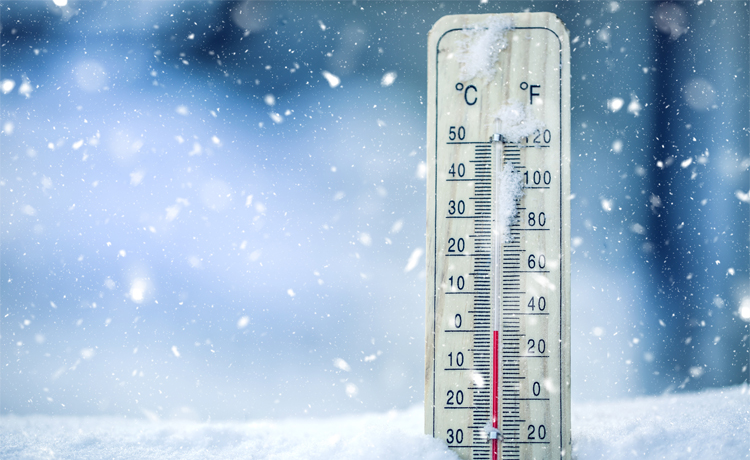The bitter cold is back to bite us this new year, and many people are struggling to adjust to our recent cold spell. Slush turns to ice, making driving conditions very dangerous, especially for new drivers, which our school is full of. This is many students’ first winter with their license, so the extreme weather conditions can be scary without proper experience. We asked NBC Chicago Meteorologist and Neuqua Valley Alumni Kevin Jeanes for some advice to stay safe amidst this dicey weather.
When asked about the most important things people can do to stay safe during the severe cold, Jeanes stresses the importance of dressing appropriately. This means that your hands, ears, and face should be covered up, even if you are working out! Jeanes explains, “I see too many teenagers running out in gym shorts or just a hoodie when it’s zero degrees outside,” which I bet many Neuqua students are culprits of.
Your extremities, which are body parts that extend outward such as your toes, fingers, and nose, are the first areas of your body to fall victim to frostbrite, so make sure they are well covered! Exposed skin is also more vulnerable to frostbite, and it may occur in only five to ten minutes with wind chills dipping to -30 and -40. I know that it often feels like your puffy winter coat will ruin an outfit, so layering is a great technique to stay both warm and stylish.
As a high school student, you are starting to learn how to take care of yourself and be responsible for your next stages of life. Part of this means following precautions that should be taken to keep your home and cars safe during these frigid months. It is important to leave blankets, extra coats, and an emergency kit in your car in case you get caught in a snow drift, leaving you stuck in your car. This will ensure that even if you are unable to turn on the car, you will still be able to stay warm until help arrives.
Jeanes recommends keeping your tire pressures up, and ensuring that any snow on your car is cleared off before driving. “You should also turn the thermostat down a couple of degrees in your home to not over-work the furnace (and cut down on costs),” describes Jeanes. “You can let the faucets drip a little bit of water to prevent pipes from freezing.”
While an arctic blast is normal for our climate, this is the coldest it has been in five years. Up until recent weeks, we have had a mild winter, which is mainly due to El Nino, but we just so happen to be the lucky recipients of an arctic blast this year. Some scientists suspect that the melting ice caps caused by climate change could be the reason for this disruption in the polar jet stream and consequential arctic blasts. “In theory, the warming planet could actually create colder spells for us in January and February,” explains Jeanes, “but more research needs to be done.”
Maintaining your safety in freezing temperatures sounds like a rather daunting task, but armed with these tips provided by a professional, you can rest assured that you are out of harm’s way.








